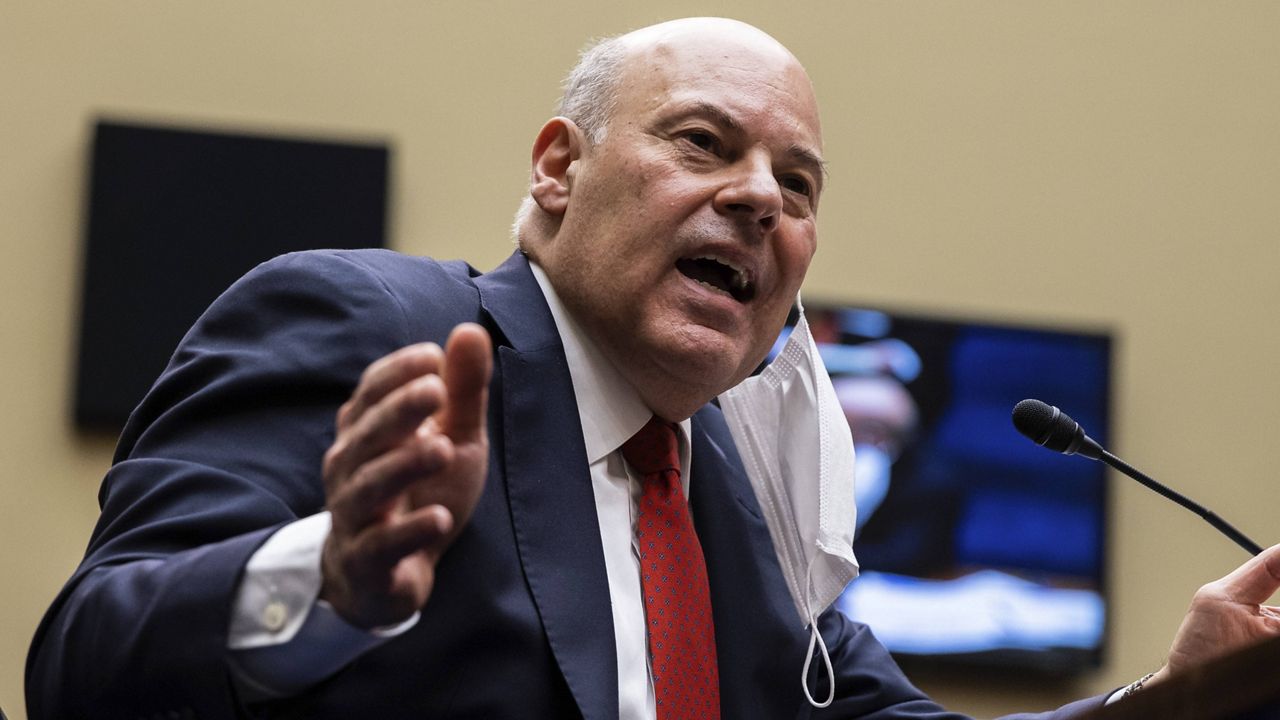The Department of Justice is investigating Postmaster General Louis DeJoy over campaign contributions tied to his former private sector business, according to his spokesperson.
News of the investigation was first reported by the Washington Post, which reported that federal authorities have subpoenaed DeJoy and interviewed current and former employees of DeJoy and his business in recent weeks.
Spokesperson Mark Corallo, who confirmed the investigation, vehemently denied any wrongdoing by DeJoy.
“Mr. DeJoy has learned that the Department of Justice is investigating campaign contributions made by employees who worked for him when he was in the private sector,” Corallo said in a statement. “He has always been scrupulous in his adherence to the campaign contribution laws and has never knowingly violated them.”
“Mr. DeJoy fully cooperated with and answered the questions posed by Congress regarding these matters,” Corallo said in a statement. “The same is true of the Postal Service Inspector General's inquiry which after a thorough investigation gave Mr. DeJoy a clean bill of health on his disclosure and divestment issues.”
“He expects nothing less in this latest matter and he intends to work with DOJ toward swiftly resolving it,” the statement concludes.
DeJoy, a wealthy former logistics executive, has been mired in controversy since taking over the Postal Service last summer and putting in place policy changes that delayed mail before the 2020 election, when there was a crush of mail-in ballots.
Last year, DeJoy faced additional scrutiny after the newspaper reported that five people who worked for his former company, New Breed Logistics, said they were urged by aides of DeJoy or by DeJoy himself to write checks and attend political fundraisers at DeJoy’s North Carolina mansion. Two former employees told the newspaper that DeJoy would later give bigger bonuses to reimburse for the contributions.
It’s not illegal to encourage employees to contribute to candidates. It is illegal to reimburse them as a way of avoiding federal campaign contribution limits.
DeJoy, who has not been charged with a crime, denied he had repaid executives for contributing to Trump’s campaign, amid questioning before a congressional committee last year.
Campaign finance disclosures show that between 2000 and 2014, when New Breed was sold, more than 100 employees donated a total of more than $610,000 to Republican candidates supported by DeJoy and his family. He and his family have contributed more than $1 million to Republican politicians.
A district attorney in Wake County, North Carolina, earlier this year decided not to pursue a criminal investigation into the allegations, saying the matter was out of her office’s jurisdiction.
The Associated Press contributed to this report.



